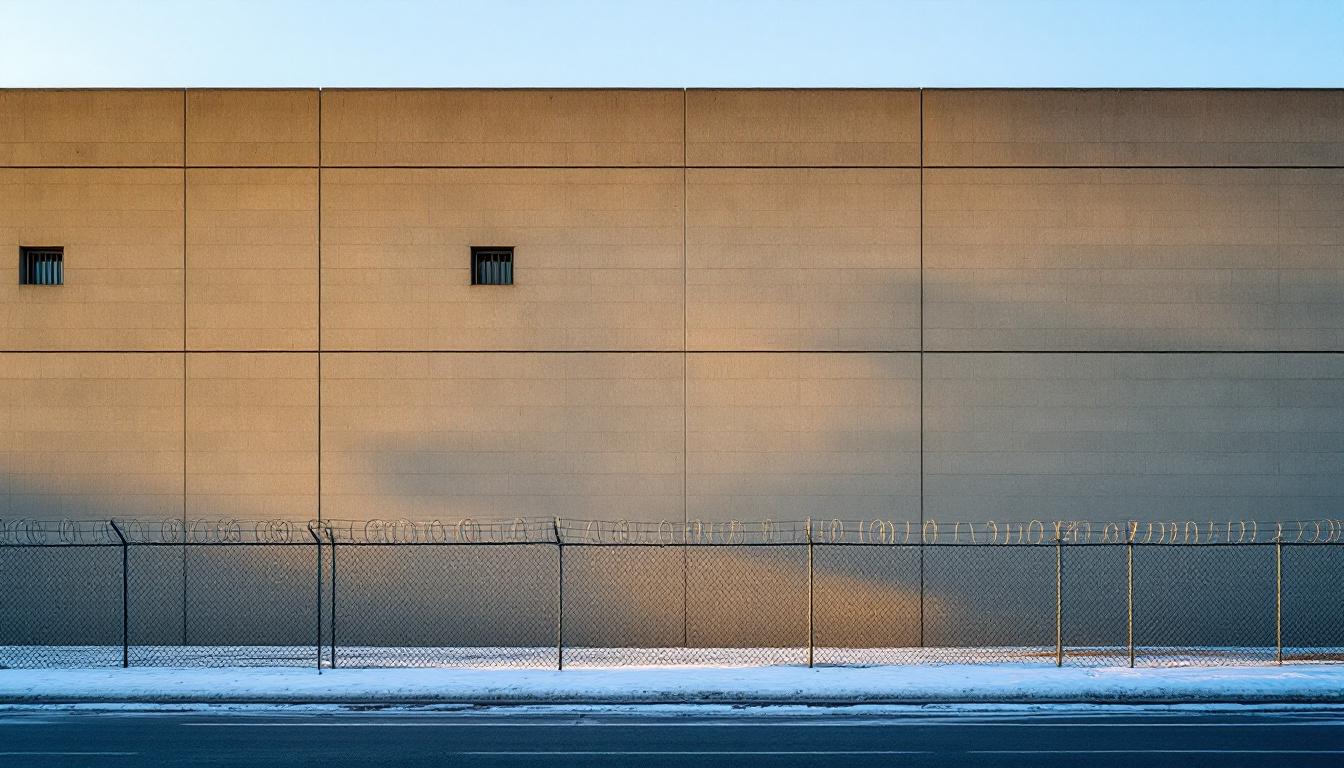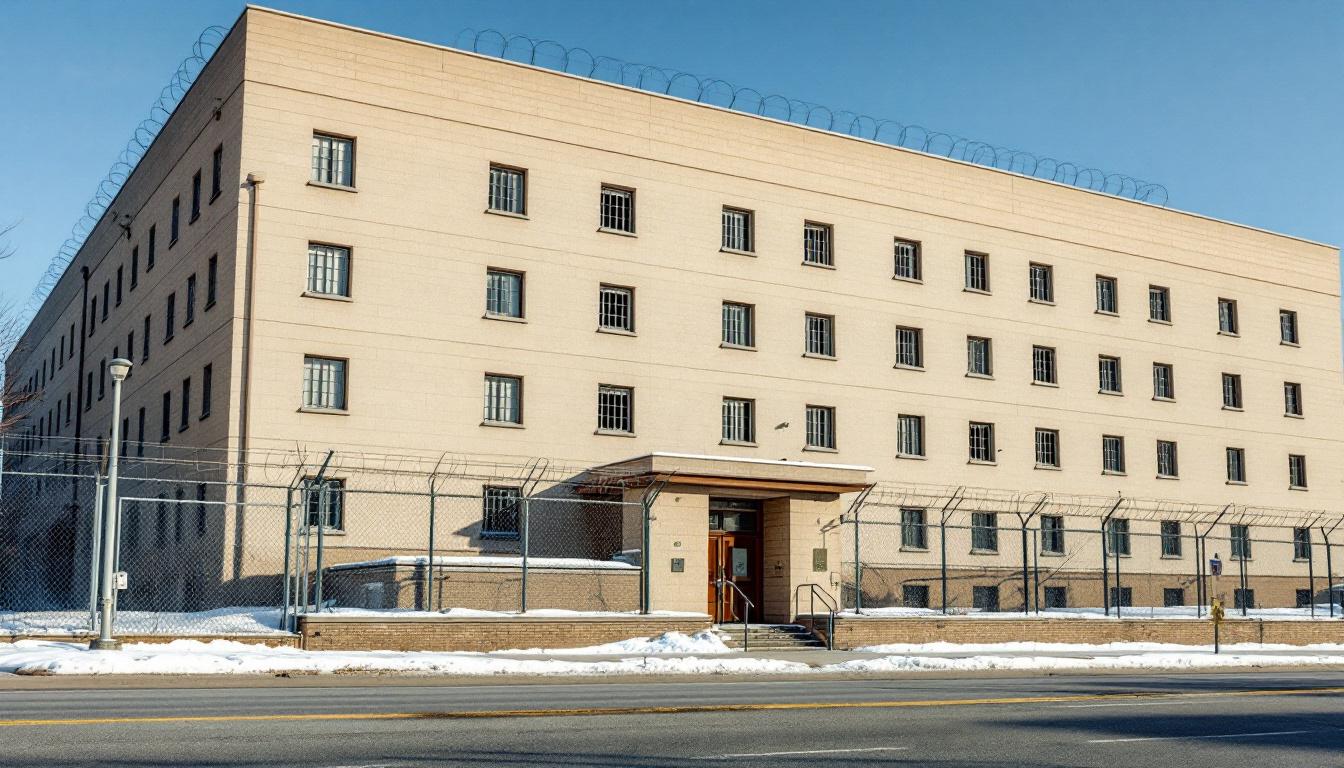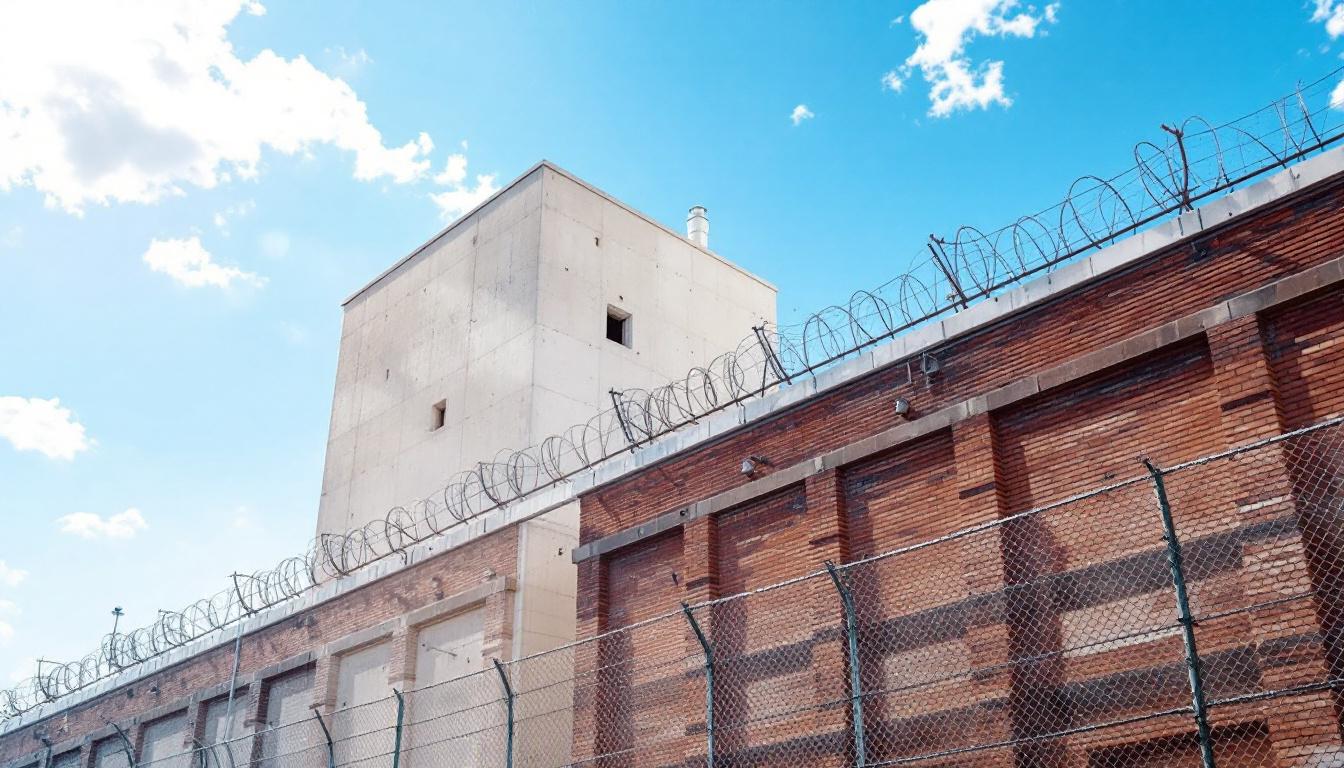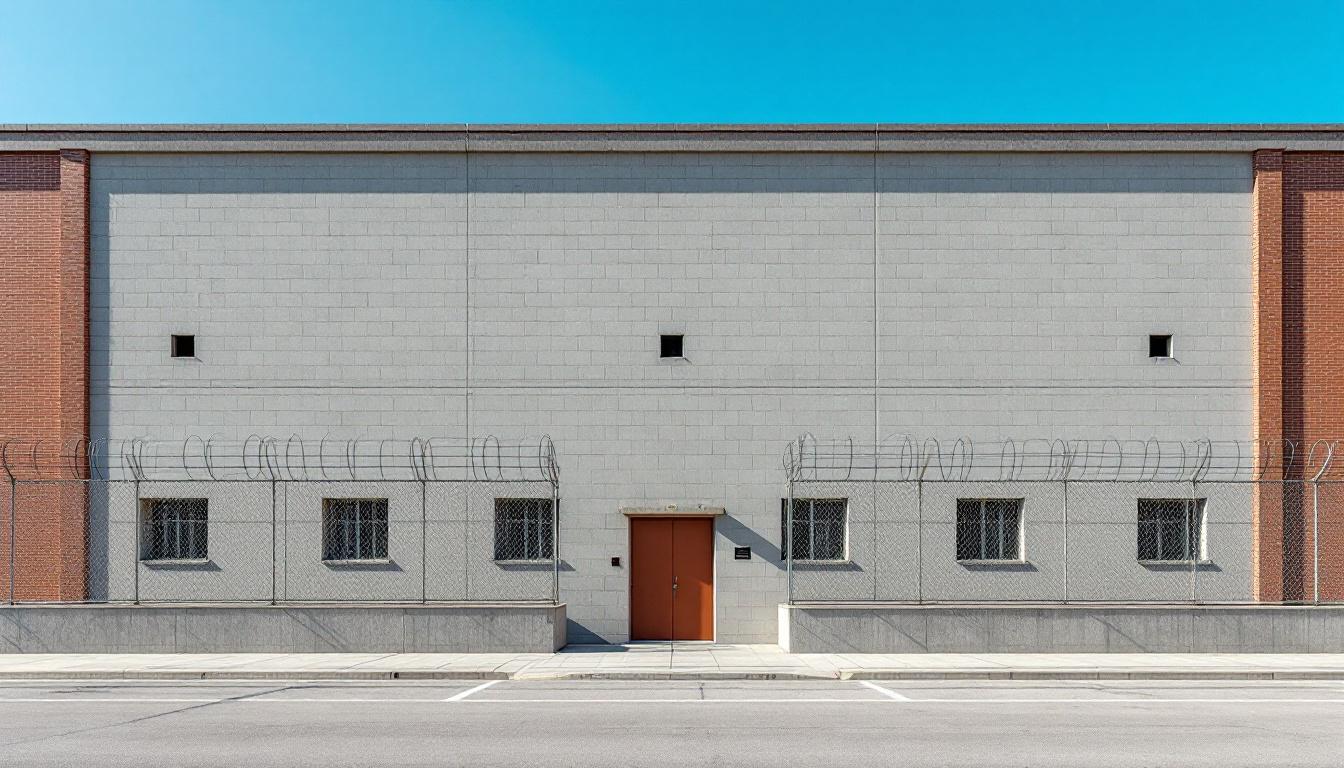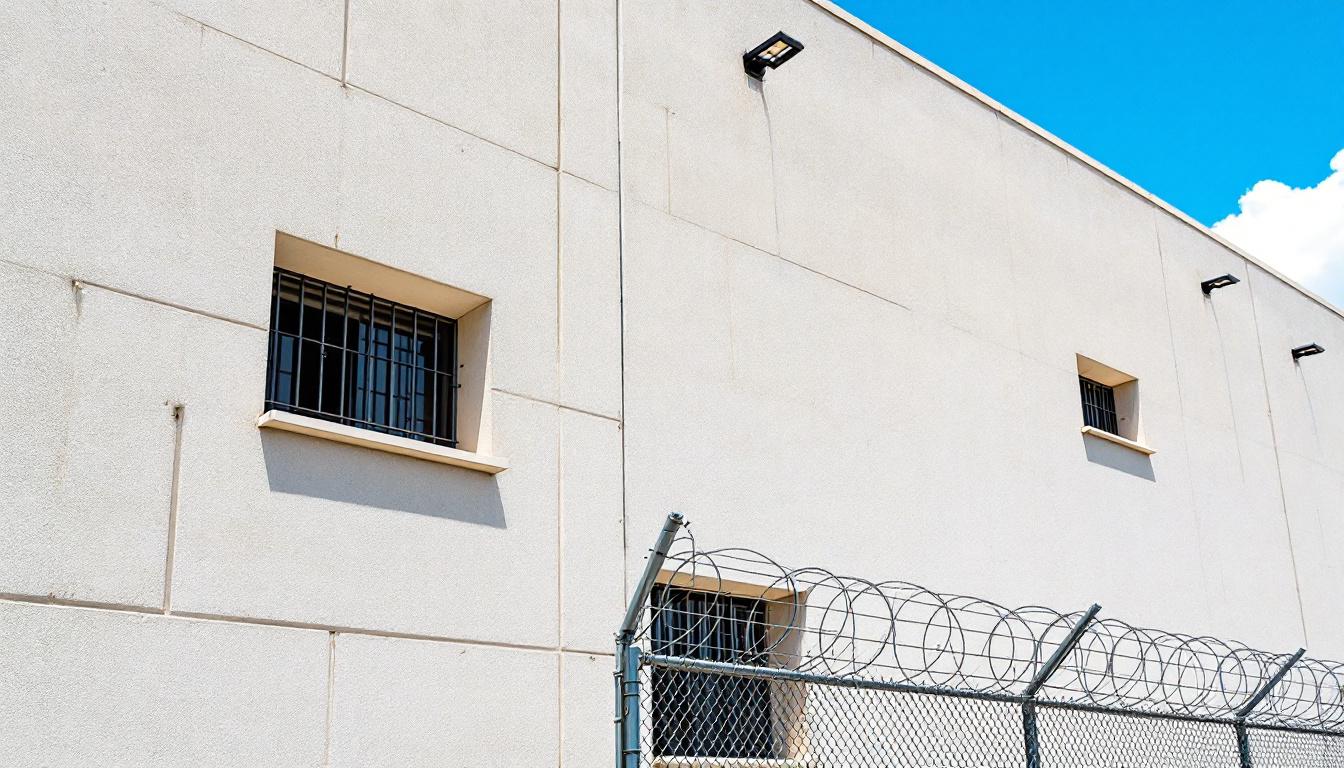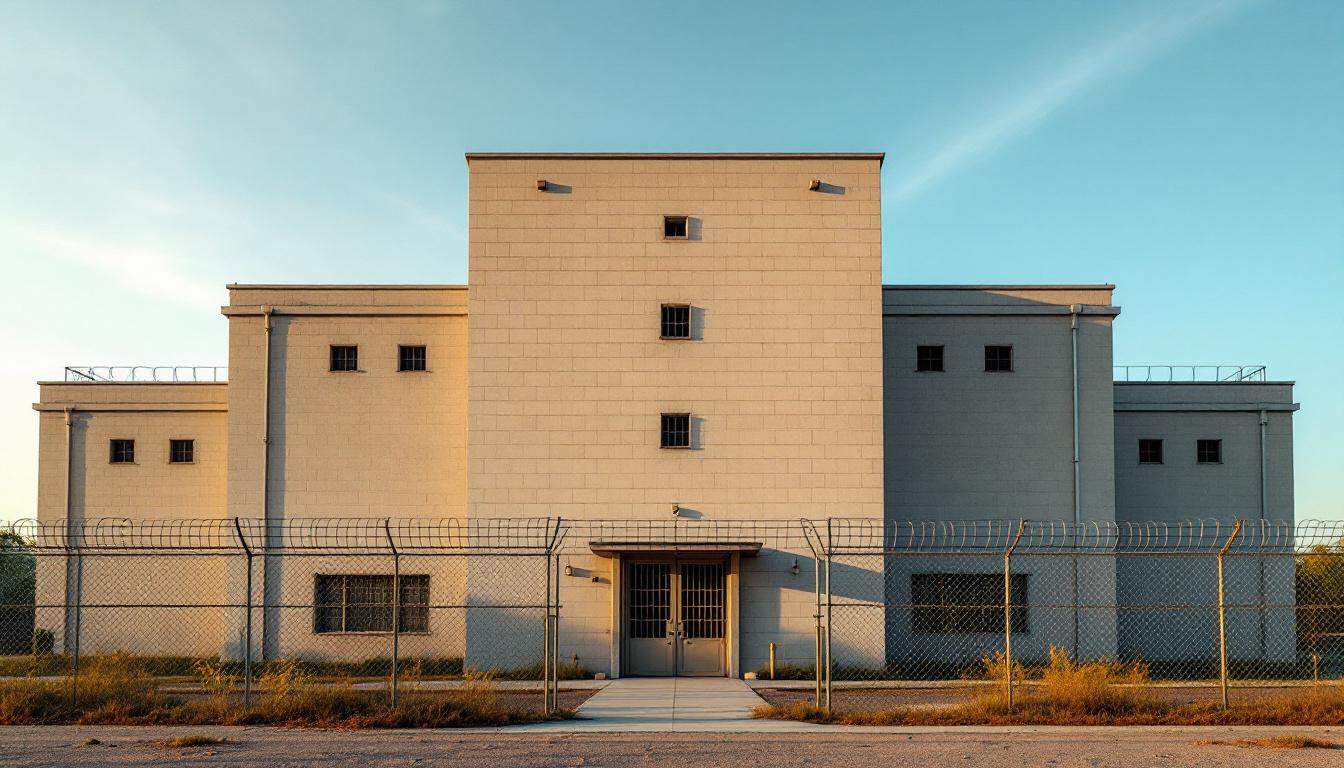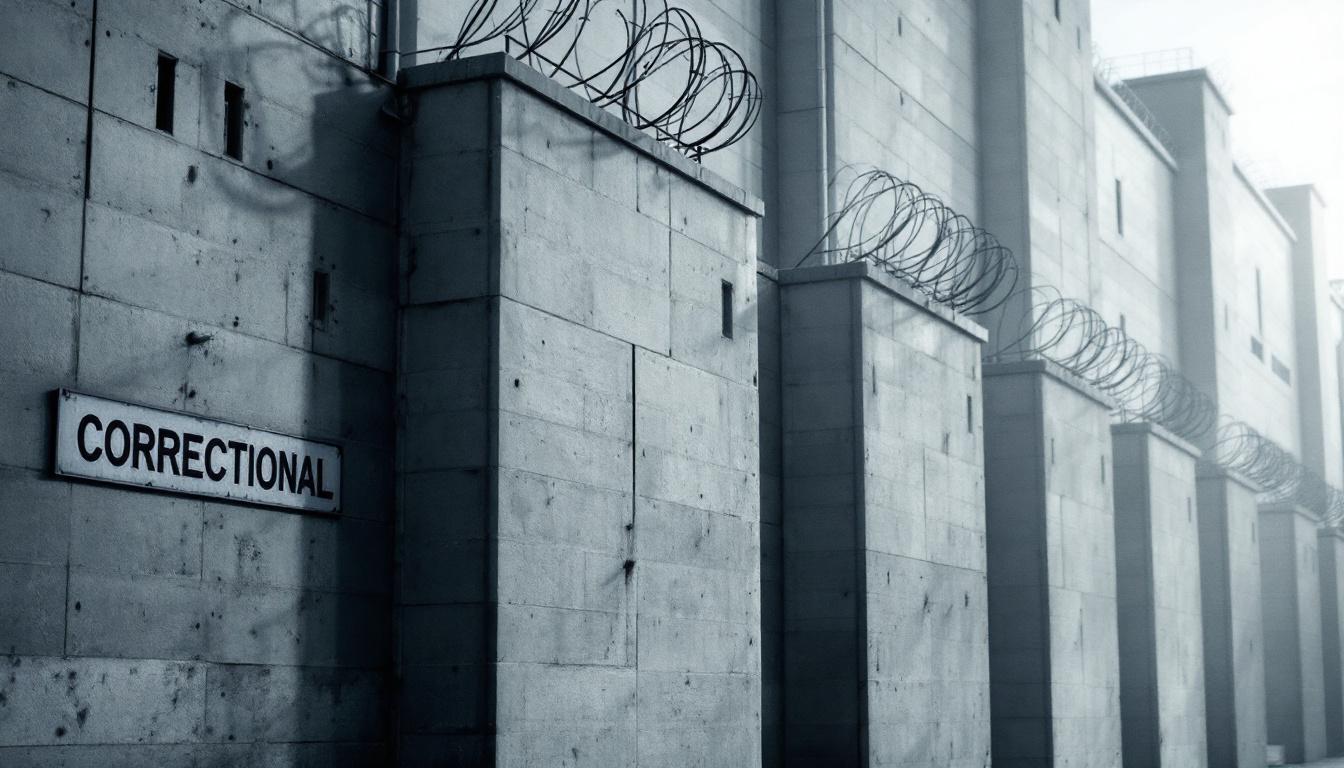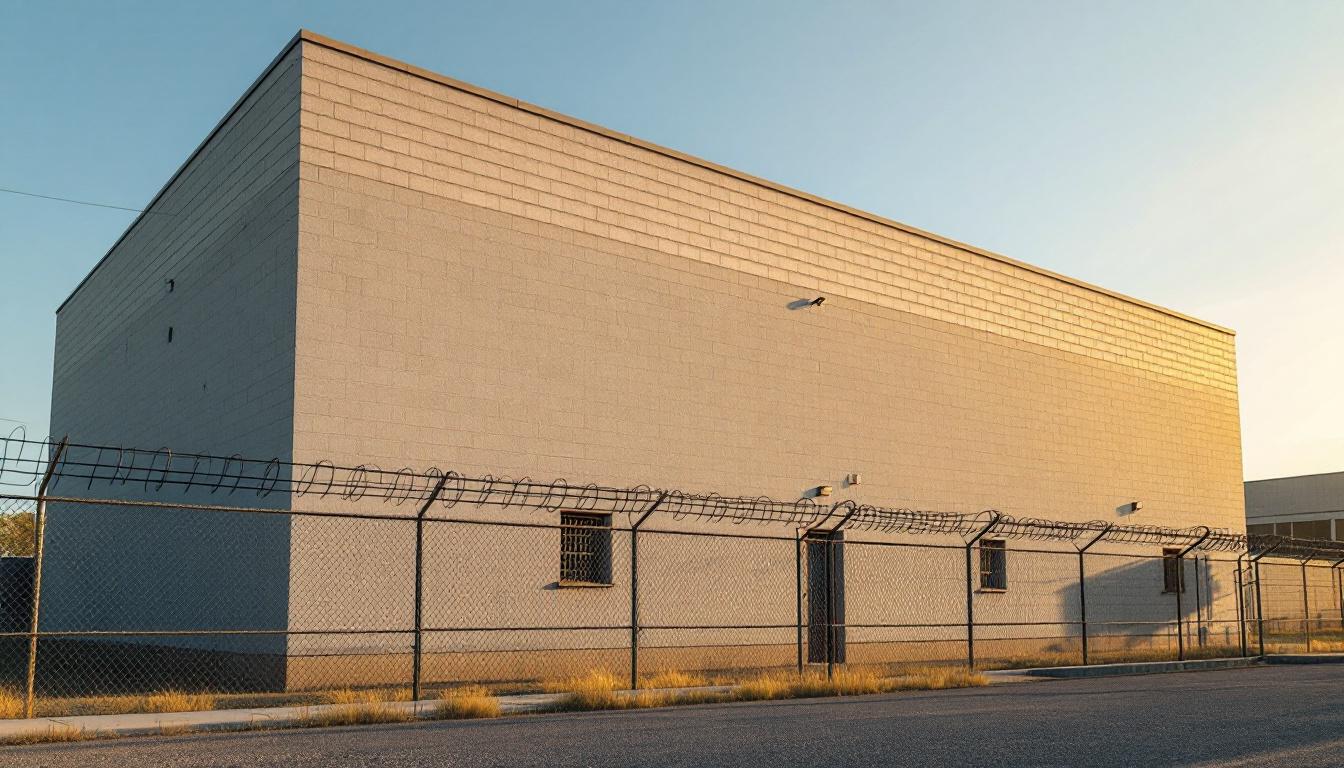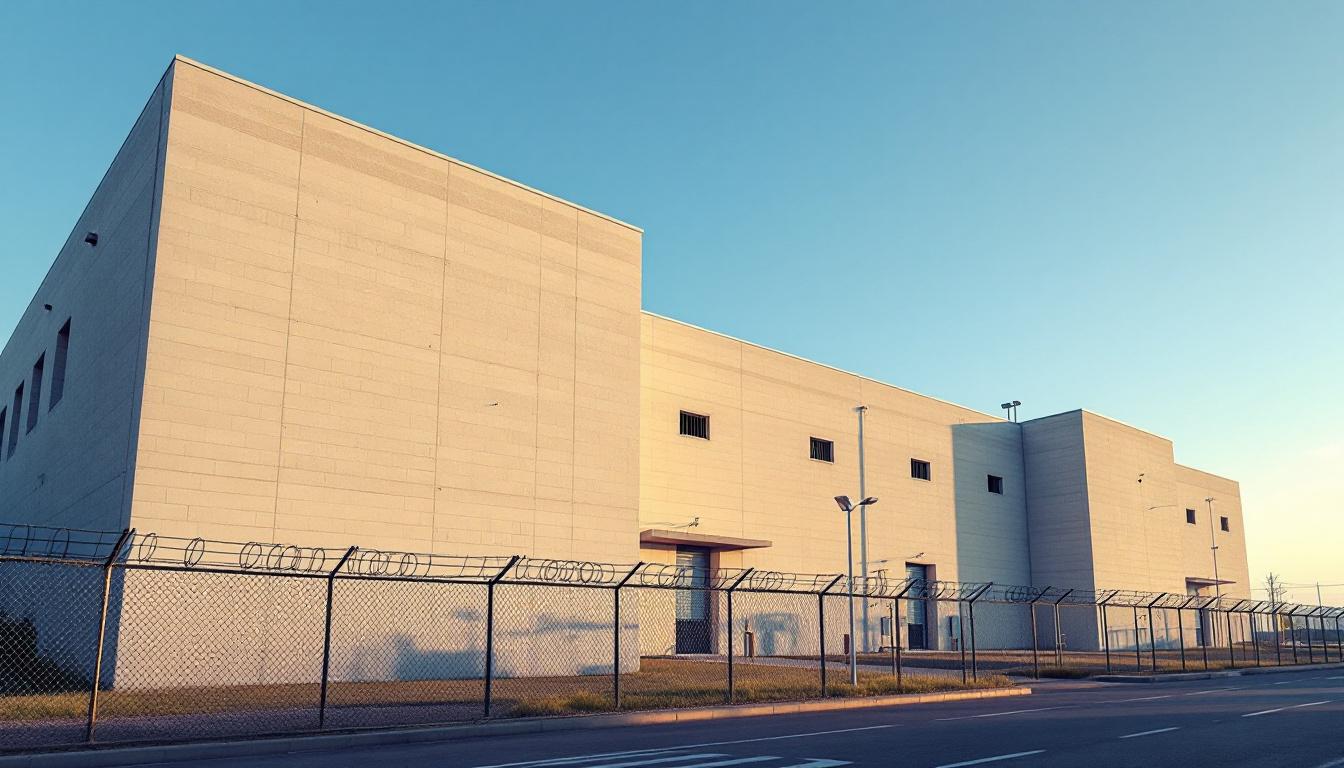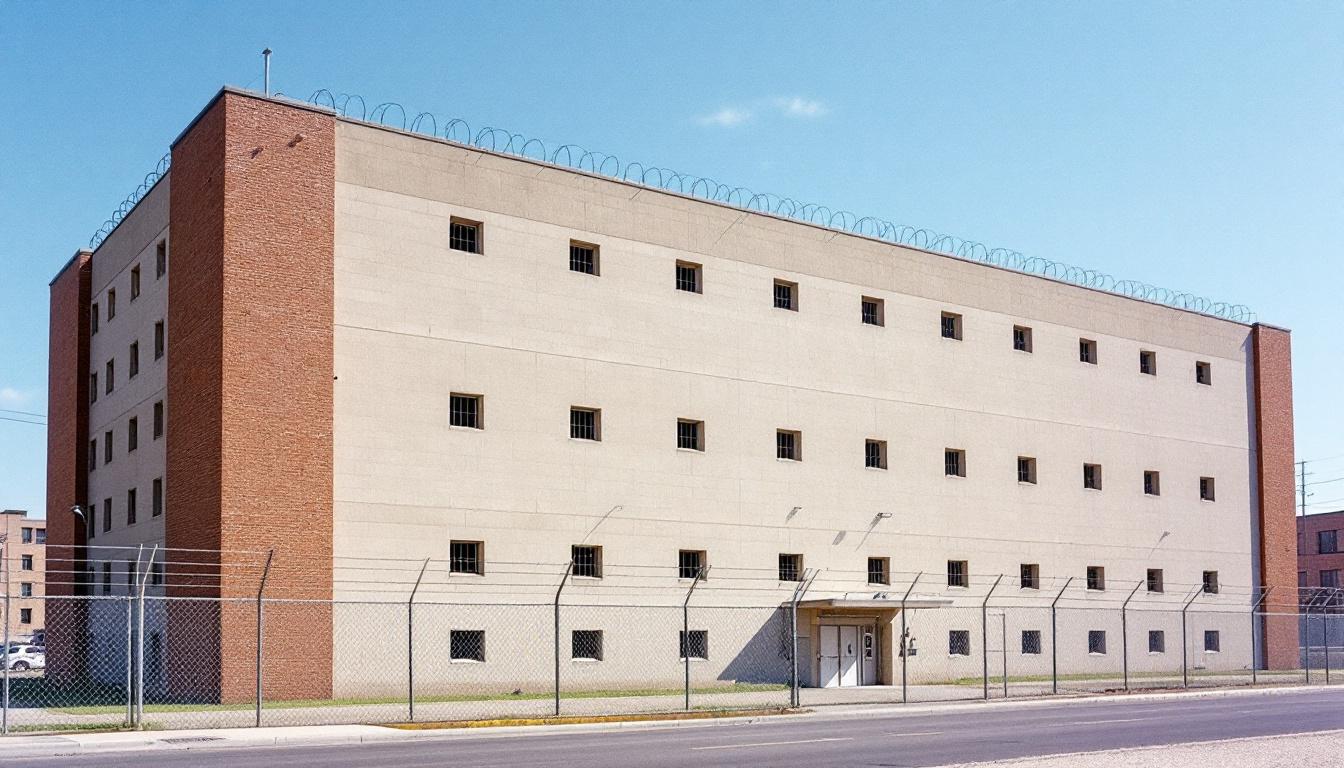
Quick Navigation
How to contact an inmate at Elbert County Jail
This comprehensive guide will walk you through how to connect with an inmate at Elbert County Jail. Follow the steps below to find an inmate and send letters and photos:
- Search for the inmate using our search tool below
- Create your account or log in to Penmate
- Write your message (up to 6,000 characters)
- Send instantly - inmates receive printed copies daily
Find an Inmate
Search for an inmate to start communicating today
Tip: You can search by first name, last name, or inmate ID number
To contact a person at Elbert County Jail start by searching for the person on the facility website. Perform a search by following these steps:
- Step 1: Enter their first name and last name into the search form and click "Search"
- Step 2: Locate their inmate record
- Step 3: Write down their Inmate ID and any housing information provided
Important! Be sure to enter the person's full name. Nicknames should not be used.
How to Send Messages to Inmates

You can use your phone or computer to send emails, letters, and photos to an inmate. Messages are sent electronically to inmate tablets or kiosks at the facility. If you would like to send a message, start by searching for an inmate at Elbert County Jail.
Sending Photos and Postcards

A great way to send love and support to a loved one at Elbert County Jail is to send photos and postcards. It only takes a few minutes to send photos from your phone and it makes a huge difference. You can also mail postcards with words of support and inspiration, or design your own postcard for special moments like birthdays and holidays.
Important! Be sure not to send any explicit photos or they may not be approved by the facility. You can also use a photo printing app like Penmate to make sure your photos are printed at the correct size (4x6 or 3x5) and are mailed according to the rules and regulations of Elbert County Jail.
Frequently asked questions about Elbert County Jail
-
How long does it take to deliver a message?
If you're sending an email message your letter is usually delivered within 24-48 hours. For messages sent via mail you should expect delivery within 3-7 days. All messages will need be approved by Elbert County Jail.
-
How much does it cost to send a message to Elbert County Jail?
You can send a message free using your phone or mail a message via USPS for the price of a $0.60 stamp and envelope. You can also purchase credits or e-stamps from services starting at $1.99.
-
What services can I use to contact an inmate at Elbert County Jail?
Penmate
You can use Penmate to send letters and photos to an inmate from your phone. It's an easy way to stay in touch during your loved one's incarceration. Use the inmate locator to find an inmate's location and contact information, then you can send messages within a few minutes.
Securus messaging
Securus may be another option for communicating with an inmate at Elbert County Jail. You can create a friends and family account and purchase credits to send messages. All messages will be reviewed and must be approved by the facility.
JPay
Some county jails and state prisons may support sending messages with JPay. You must register an account with the system, find your loved one, and purchase stamps to send messages. For some locations you can also attach photos.
Smart Jail Mail
You may also check if Smart Jail Mail is available at Elbert County Jail. Smart Jail Mail is operated by Smart Communications and has contracted with some state and county jails. After purchasing credits, your messages and photos are sent to the facility, printed out, and then handed out to your loved one.
-
What is the mailing address of Elbert County Jail?
Mailing address:
Elbert County Jail
26 W Church St
Elberton, GA 30635
Phone: (706) 283-2040 -
What are the visiting hours at Elbert County Jail?
Visiting hours at Elbert County Jail vary by housing unit and security level. Generally, visits are scheduled on weekends and holidays, with some facilities offering weekday visits. Contact the facility directly at (706) 283-2040 or check their website for the current visiting schedule. Visits typically last 30-60 minutes and must be scheduled in advance.
-
What items are prohibited when sending mail to Elbert County Jail?
Prohibited items typically include: cash, personal checks, stamps, stickers, glitter, glue, tape, staples, paperclips, polaroid photos, musical or blank greeting cards, hardcover books, magazines with staples, and any items containing metal or electronics. Only send letters on plain white paper with blue or black ink. Photos must be printed on regular photo paper (no Polaroids). Always check with Elbert County Jail for their specific mail policies.
-
How do I send money to an inmate at Elbert County Jail?
You can send money to an inmate at Elbert County Jail through several methods: 1) Online using JPay, Access Corrections, or the facility's approved vendor, 2) Money orders mailed directly to the facility with the inmate's name and ID number, 3) Kiosks located in the facility lobby, or 4) Over the phone using a credit or debit card. Fees vary by method, typically ranging from $2.95 to $11.95 per transaction.
-
Can I schedule a video visit with an inmate at Elbert County Jail?
Many facilities now offer video visitation as an alternative to in-person visits. At Elbert County Jail, video visits may be available through services like Penmate, Securus Video Connect, GTL, or ICSolutions. Video visits typically cost $10-20 for 20-30 minutes and must be scheduled in advance. You'll need a computer or smartphone with a camera and reliable internet connection. Contact the facility for their specific video visitation policies and approved vendors.
-
What identification do I need to visit an inmate at Elbert County Jail?
All visitors must present valid government-issued photo identification such as a driver's license, state ID, passport, or military ID. Minors must be accompanied by a parent or legal guardian who can provide the minor's birth certificate. Some facilities require visitors to be on the inmate's approved visitation list, which may require a background check. Contact Elbert County Jail for specific ID requirements and visitor approval procedures.
-
How can I find out an inmate's release date?
To find an inmate's release date at Elbert County Jail, you can: 1) Use the online inmate search tool if available, 2) Call the facility's records department, 3) Contact the inmate's case manager or counselor, or 4) Have the inmate provide this information during a call or visit. For privacy reasons, some facilities only release this information to immediate family members.
Facility Overview

About Elbert County Jail
County jails serve as essential community anchors within Colorado's correctional framework, and this collaborative approach to public safety takes on particular significance in the rural landscape surrounding Kiowa. The Elbert County Jail, CO operates as a vital component of the region's justice system, where mountain geography and close-knit community dynamics shape both challenges and opportunities for effective corrections management. This CO correctional facility typically maintains focus on immediate public safety needs while working toward longer-term rehabilitation outcomes that benefit both individuals and the broader community.
Located in Kiowa, the facility generally provides standard county-level detention services including pre-trial housing, sentenced offender management, and coordination with state and federal correctional systems. The population services approach often emphasizes maintaining family connections despite the rural setting, recognizing that successful reintegration depends heavily on preserving community ties. Programs may include basic educational opportunities, substance abuse awareness, and work release coordination when appropriate, though specific offerings typically vary based on available resources and individual circumstances.
The facility's contribution to public safety extends beyond secure detention to encompass collaborative relationships with local law enforcement, court systems, and community organizations throughout Elbert County. Staff generally work to balance immediate security requirements with preparation for eventual community reentry, understanding that effective corrections in rural Colorado communities requires sustained cooperation between multiple agencies and stakeholders committed to both accountability and rehabilitation outcomes.
Programs & Services
Through comprehensive therapeutic communities and structured support networks, Elbert County Jail cultivates an environment where meaningful rehabilitation becomes achievable for the population. The facility's approach emphasizes collaborative healing and personal accountability, recognizing that sustainable change emerges through consistent guidance and peer support. These initiatives typically foster connections between participants and their families while addressing the underlying factors that may have contributed to their incarceration, creating pathways toward successful community reintegration.
Educational advancement and vocational skill development form cornerstone elements of the facility's rehabilitative framework. Education programs often encompass literacy enhancement, high school equivalency preparation, and various academic courses designed to strengthen foundational knowledge. Moreover, vocational training opportunities may supply participants with marketable skills in multiple trade areas, equipping them with practical competencies that enhance employment prospects upon release. These programs typically emphasize hands-on learning experiences that build both technical proficiency and workplace readiness.
The facility's therapeutic services address complex behavioral and psychological needs through specialized treatment modalities. Sex offender treatment programs may provide intensive counseling and cognitive restructuring for appropriate participants, while conflict resolution initiatives often teach essential communication and problem-solving skills. Moreover, restorative justice programs typically facilitate meaningful dialogue between participants and community members, promoting accountability and healing for all involved parties. These comprehensive support services work synergistically to address the multifaceted challenges facing the population, fostering personal growth and preparing individuals for successful reentry into their communities.
Daily Life & Visitation
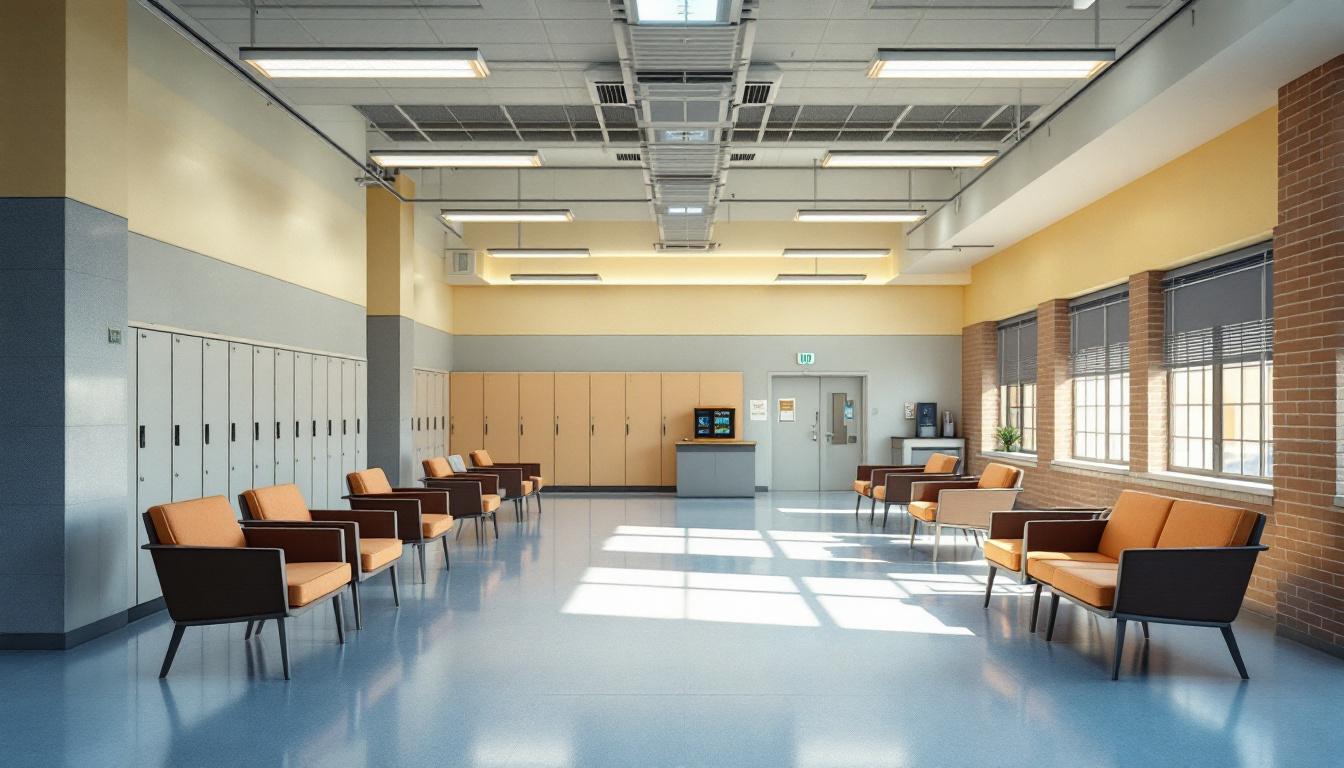
The carefully orchestrated organizational framework at Elbert County Jail shapes every aspect of the population's experience, with systematic schedules and structured environments designed to maintain order while providing essential services. Today's operations consistently revolve around predetermined routines that begin with early morning wake-up calls, followed by headcounts and the distribution of meals at regularly scheduled intervals throughout the day. The population typically moves through their daily activities according to established timeframes that generally include designated periods for personal hygiene, meals, recreation, and various programming opportunities that supply both structure and purposeful engagement.
The living accommodations within the facility are organized into distinct housing units that may vary in capacity and configuration, with the population typically assigned to dormitory-style arrangements or individual cells depending on classification levels and available space. Each housing area generally provides basic amenities including sleeping quarters, restroom facilities, and common areas where residents can interact during approved times. Moreover, the facility usually maintains specific protocols for personal property storage, allowing the population to keep approved items while ensuring security standards are consistently met throughout all housing units.
Structured programming schedules often include educational opportunities, counseling sessions, and work assignments that may involve kitchen duties, laundry services, or facility maintenance tasks under staff supervision. Recreation and exercise opportunities typically supply important physical outlets, with the population generally having access to outdoor areas or recreational spaces during designated periods. Whereas daily activities follow established routines, family connections remain vital through visitation policies that usually allow scheduled visits and communication options such as phone calls or correspondence, helping the population maintain important relationships with their support systems outside the facility.
Ready to Connect?
Start communicating with your loved one today
Search for an Inmate
